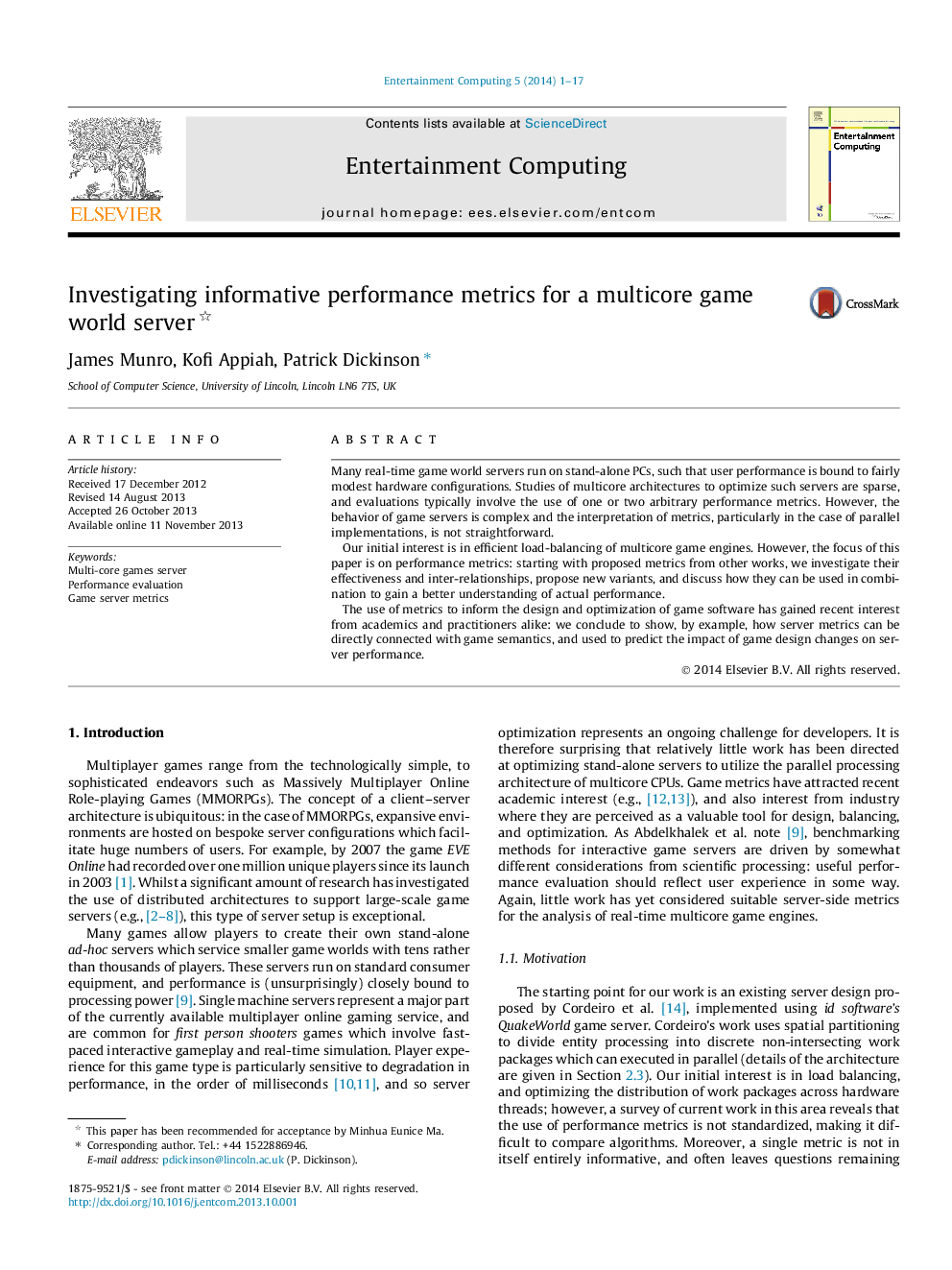| Article ID | Journal | Published Year | Pages | File Type |
|---|---|---|---|---|
| 381921 | Entertainment Computing | 2014 | 17 Pages |
Many real-time game world servers run on stand-alone PCs, such that user performance is bound to fairly modest hardware configurations. Studies of multicore architectures to optimize such servers are sparse, and evaluations typically involve the use of one or two arbitrary performance metrics. However, the behavior of game servers is complex and the interpretation of metrics, particularly in the case of parallel implementations, is not straightforward.Our initial interest is in efficient load-balancing of multicore game engines. However, the focus of this paper is on performance metrics: starting with proposed metrics from other works, we investigate their effectiveness and inter-relationships, propose new variants, and discuss how they can be used in combination to gain a better understanding of actual performance.The use of metrics to inform the design and optimization of game software has gained recent interest from academics and practitioners alike: we conclude to show, by example, how server metrics can be directly connected with game semantics, and used to predict the impact of game design changes on server performance.
